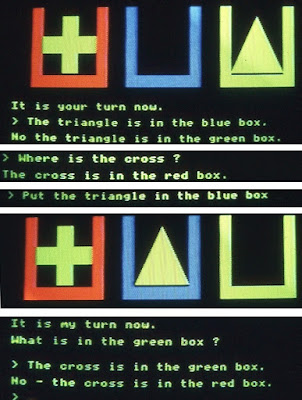 |
| UMIST Mathematics and Social Sciences Building (when new) |
I have been meaning to post about this for some time. I thought of it again this week because we are going to have to take daughter to retrieve the rest of her possessions from her shared house at university (not UMIST). It will be the second chock-a-block car load. The first was in March when the university campus closed due to the coronavirus outbreak.
Two full loads of a family estate car! Indeed, some students hire Transit or Luton vans to move their stuff. The materialistic society! Not how things were.
 |
| Arriving at university, 1974 |
It is from a 15-minute film (linked below) made by the UMIST film and television society to give an idea of student life. It’s a real time-capsule for those of that university or college era.
I went to UMIST myself a few years after this for a one-year postgraduate course as mentioned in the last post, and much is familiar, especially the Brutalist Maths and Social Sciences building with the letters UMIST at the top (12:46 in the film), where my course was based. I used to avoid the lift and huff and puff my way up to floor L feeling fit and superior until one day I was overtaken by a Ph.D. student running up the stairs with a rucksack full of bricks on his back.
For me, the film feels more like the three abortive months I spent at teacher training college in Leeds in 1973, or visiting friends at university around 1970 before I went as a mature student. The titles at the beginning say it was made in 1972, but the list of courses, cinema programmes, the name of the person running for election and the dates of rag week clearly date it as 1974.
Among the evocative things are: the dingy, sparsely-furnished accommodation; those electrical appliances; the A/V equipment; the Greenslade gig; the student societies; rag week (would health and safety let them use those floats now?); the cars – I recognise them all; the long gone shops such as Ratners which made the biggest PR mistake ever; “chalk and talk” lectures. And is that George Best who back-passes the ball at the start of the Manchester United match?
I love the background music tracks written especially for the film, accredited to Nick Rhodes, although not ‘that’ Nick Rhodes who would have been only eleven at the time.
It makes three years at university look the wonderful experience it can be, but, interestingly, less than a minute of the film (11.49-12.46) is concerned with academic work.
I have few problems with that. University is supposed to be a shared learning experience. You learn as much socially, by talking things over with other students, as you do from lectures and course materials. If you take away the social, there seems little point in being there.
And they are taking it away. Daughter has not had a good experience at her university this year. Firstly, there was no teaching because the lecturers were on strike, and then the university campus closed half way through the second term because of the coronavirus outbreak. She has been home since then. And for next year, some universities are now announcing that teaching will be online and there will be limited access to tutorials, laboratories, workshops and studios, and few student union activities.
She is doing art. Her particular interest is decorative ceramics. How can you do a degree in art if you can’t use studios and workshops, or show your work to other students? Similar questions arise with laboratory sciences, computing subjects, music and others. Is there any wonder students are beginning to say they are thinking of having a year out? They are not going to be saddled with student debt for lectures and tutorials through Zoom.
That would affect university finances, especially if overseas students don’t come. That’s a big chunk of Britain’s university income. I predict insolvencies in the sector. Will the government bail them out? Probably not. They are hotbeds of liberals and socialists.
MORE ABOUT UMIST
UMIST started out as Manchester Mechanics Institution, then Manchester Technical School and later Manchester Municipal College of Technology. It became a university college in 1956, able to award degrees on behalf of the University of Manchester, and changed its name to UMIST in 1966. It became a completely autonomous university in 1994 but merged back with the University of Manchester in 2004 and is now no more. The Maths and Social Sciences Building is due for demolition. Courses were mainly in the applied sciences, hence the male student majority. Look at that list (at 11.49 in the film): chemical engineering, electrical engineering, chemistry, polymer and fibre science, textile technology, management sciences, ophthalmic optics, mathematics, computation, civil and mechanical engineering, metallurgy, physics, biochemistry, mechanical engineering, building …
Funnily enough, I visited the Maths and Social Sciences building again around 2003 (although I did take the lift this time). As soon as I was inside it came back what a depressing building it was to be in.




